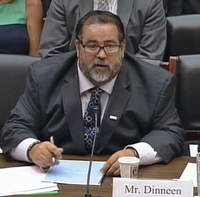Refuel Colorado Fleets, a pilot project to boost the use of alternative fuel vehicles in public and private sector fleets, has announced a new pilot program for several Colorado communities. The program is funded by a U.S. Department of Energy grant to the Colorado Energy Office. Counties selected for the year-long pilot are Routt, Larimer, Boulder, Jefferson, Adams, Garfield, Mesa, Montezuma and La Plata. A is funding the project.
Energy coaches employed by four community-based nonprofits will help business and government fleet owners work together with auto dealers, fuel providers, business leaders and local governments in the nine counties to pursue or expand use of alternative fuels. The program is aimed at accelerating the deployment of alternative fuels, reducing  petroleum imports and increasing fuel cost efficiency in public and private sector vehicle fleets. Alternative fuels being considered include compressed natural gas (CNG), liquefied natural gas (LNG), propane, biofuels and plug-in electric vehicles.
petroleum imports and increasing fuel cost efficiency in public and private sector vehicle fleets. Alternative fuels being considered include compressed natural gas (CNG), liquefied natural gas (LNG), propane, biofuels and plug-in electric vehicles.
“The Refuel Colorado Fleets energy coaches will support the adoption of alternative fuel vehicles,” said Jeff Ackermann, director of the Colorado Energy Office. “Each community will determine what makes sense for them, be that electric, natural gas, propane, or other vehicle types. Each of these provides economic and environmental benefits, making this an exciting project.”
Energy coaching will be done by Northern Colorado Clean Cities, Denver Metro Clean Cities, Garfield Clean Energy and Four Corners Office for Resource Efficiency. The pilot project is being led by CLEER: Clean Energy Economy for the Region, a Carbondale nonprofit with expertise in alternative fuel vehicle technology, energy coaching and community engagement.
“Colorado has built a strong reputation as a leader in renewable energy and other innovative industries,” said U.S. Sen. Michael Bennet, D-Colo. “Refuel Colorado Fleets’ work on these projects in counties across the state only enhances that reputation. “There is great promise in alternative fuel vehicles and these types of programs help proliferate their use and allow communities to see how best to implement proven green technologies.”
In the coming weeks, energy coaches will work with businesses and local governments in the nine counties to analyze their fleets, including miles driven and age, vehicle type and purpose, to determine the optimal alternative fuel to focus on.
 Someone is interested in the biodiesel making efforts of Syntroleum. The Tulsa-based company is in a joint venture with food giant Tyson Foods to make biodiesel from animal fats, and according to the Tulsa World, that has got the attention of some unnamed third parties looking to buy the company, assets or patents:
Someone is interested in the biodiesel making efforts of Syntroleum. The Tulsa-based company is in a joint venture with food giant Tyson Foods to make biodiesel from animal fats, and according to the Tulsa World, that has got the attention of some unnamed third parties looking to buy the company, assets or patents:









